Sark is a small island within the Bailiwick of Guernsey in southwestern English Channel, 25 miles off the French coast of Normandy. The isle was under Europe’s feudal system for the last 440 years until the very recent 2008, when the tiny island held its first democratic election. Together with the other Channel Islands, Sark is the last remnant of the former Duchy of Normandy still belonging to the Crown, and the last feudal state of the western world. With no cars, no street lights and no divorce, this tiny speck of land is one of the most peaceful and uncontaminated areas of the old continent.
Sark is about three miles long and one mile wide, with a population of 600. Prior to the constitutional reforms of 2008, Sark was governed by the Chief Pleas - the feudal parliament - comprising of 40 unelected island landowners and headed by the “Seigneur”. Since 1565, when Elizabeth I granted the island to the nobleman Hellier de Carteret in return for his protection against pirates, the Seigneurs have ruled this rock. The Seigneurs paid the British Crown a mere £1.79 annually to keep the island, and in return held the privilege of granting landowners the permission to buy and sell their houses, but only if they swear allegiance to the Crown and pay the Seigneurs one-13th of the property's purchase price.

Many of the laws, particularly those related to inheritance and the rule of the Seigneur, had changed little since they were enacted in 1565 under Queen Elizabeth I. For instance, the Seigneur retained the sole right on the island to keep pigeons and, until 2008, the only person allowed to keep an unspayed dog. He also owns all the debris washed up between the high and low tides.
Seigneur’s ancient feudal powers came under threat when in 1993, the billionaire Barclay brothers, Sir David and Sir Frederick, owners of The Ritz hotel and Telegraph newspapers, bought Sark's tiny offshore island of Brecqhou.
In accordance with Sark’s feudal laws, the Barclays were forced to pay a property tax of £179,230 that went straight into Beaumont's pocket instead of going to the state. Of further irritation to the Barclays was the law of primogeniture, meaning that property must pass whole and undivided into the hands of the eldest male heir. They challenged this law in court, won and got the law changed. Still not contented, the Barclays began to insist on democratic reforms on Sark, and in doing so, sowed the seeds of a civil unrest among the residents of the sleepy Crown protectorate.
Finally in 2008, the island’s adult population democratically elected a 28-members strong parliament, ending the 443 years of feudal rule. The Seigneurs property tax was scrapped, and in its place Sark’s 22nd Seigneur - Michael Beaumont – would receive an annual £28,000, a perk that he can pass on through his heirs in perpetuity.
Political issues aside, Sark is an idyllic spot for a vacation. To reach Sark, tourists have to take a plane to Guernsey and then get on a ferry for a 45-minute ride to the island.
Cars are illegal on Sark. The only vehicles allowed are horse-drawn carriages, bicycles, tractors, and battery-powered buggies or motorised bicycles for elderly or disabled people. Even the ambulance and the fire truck are not allowed engines and have to be towed to emergencies by farm tractor. Getting around the island, however, isn't much of a problem as it’s only around two square miles in size and can be explored on foot.
With no airstrip, no motor cars or tarmac roads, life on Sark remains visibly unaffected by modern life. The island has two churches, two pubs, a village hall, one school, one volunteer policeman and a two-cell jail that mostly remains empty. A resident doctor provides healthcare on Sark. Fire and rescue services are provided by volunteers. There are a couple of hotels and guest houses to stay.

Sark is divided into two parts, known respectively as Little Sark and Big Sark. They are joined by the narrow isthmus of La Coupee. Photo credit
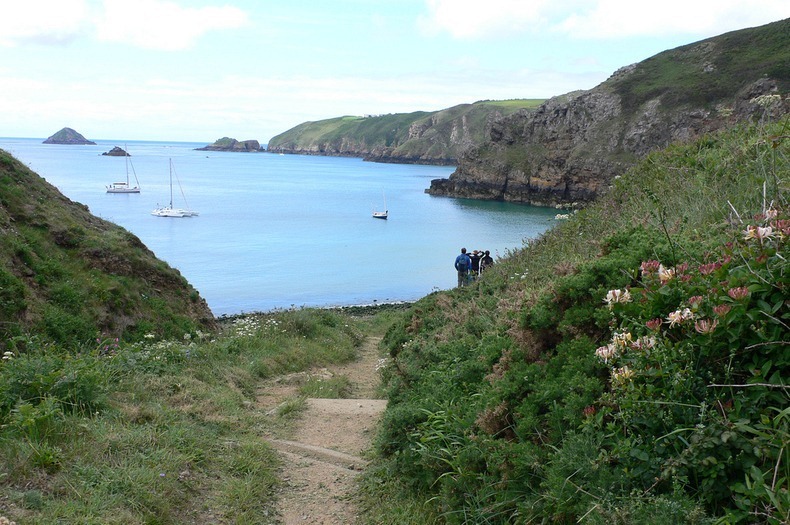

Cycling on La Coupee. Photo credit

A tractor on La Coupee. Photo credit
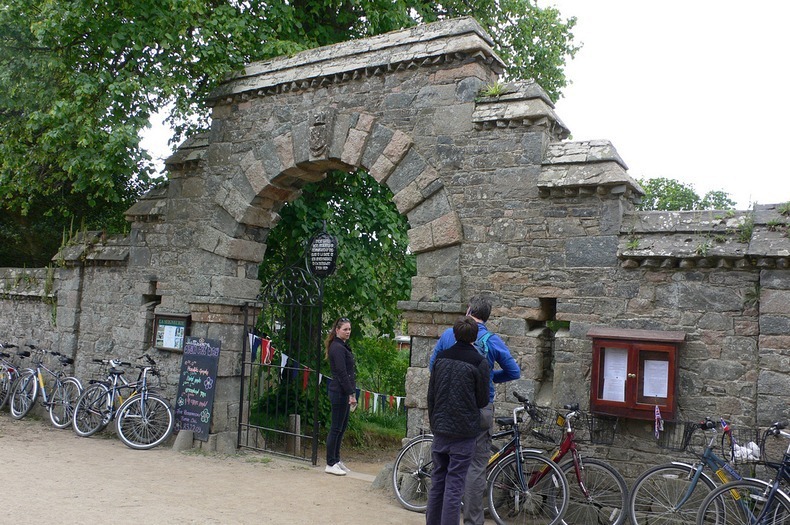
Entrance to the Seigneur’s house. Photo credit

Garden and 17th century castle of the Seigneur. Photo credit
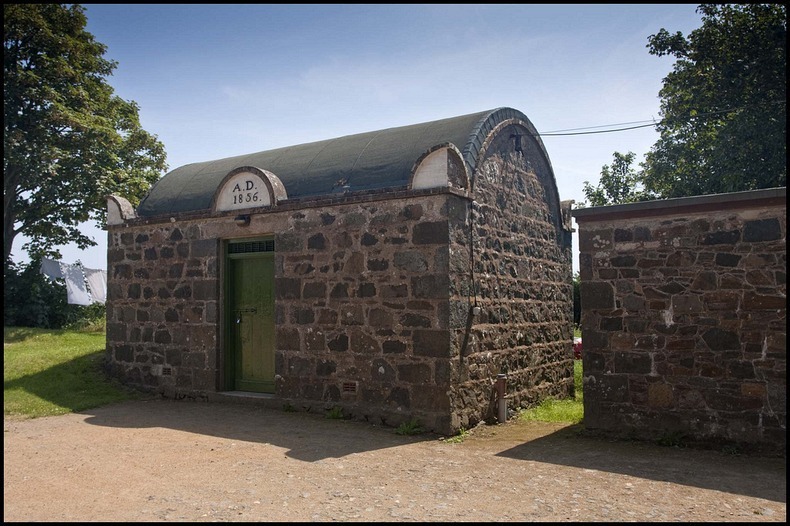
Sark’s jail. Photo credit
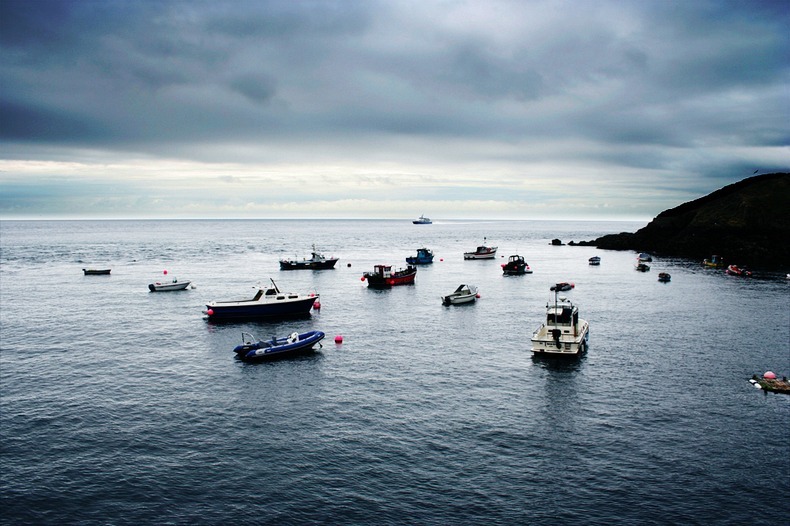
Boats in the little harbour of Sark. Photo credit
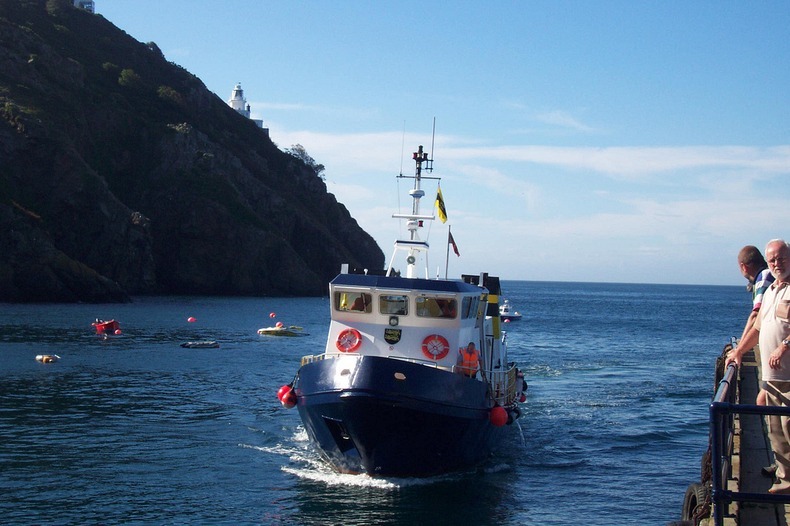
Ferry service on Sark. Photo credit
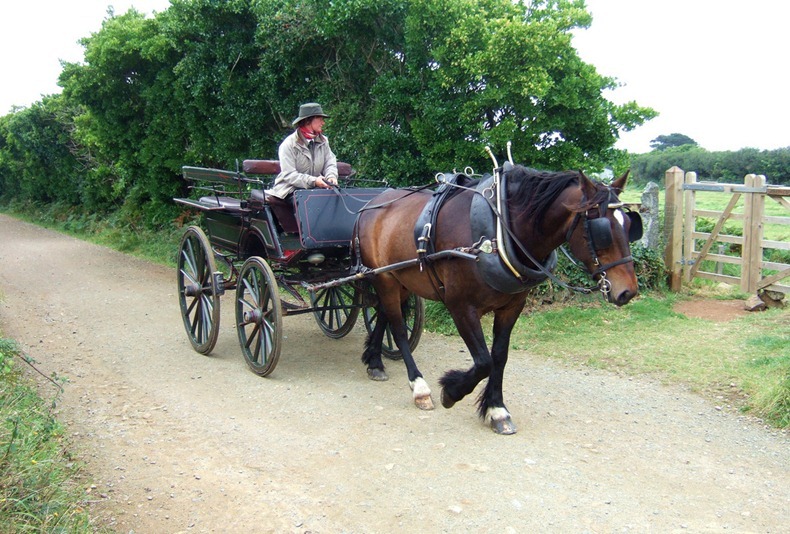
Horse drawn carriages on Sark. Photo credit

Horse drawn ambulance. Photo credit
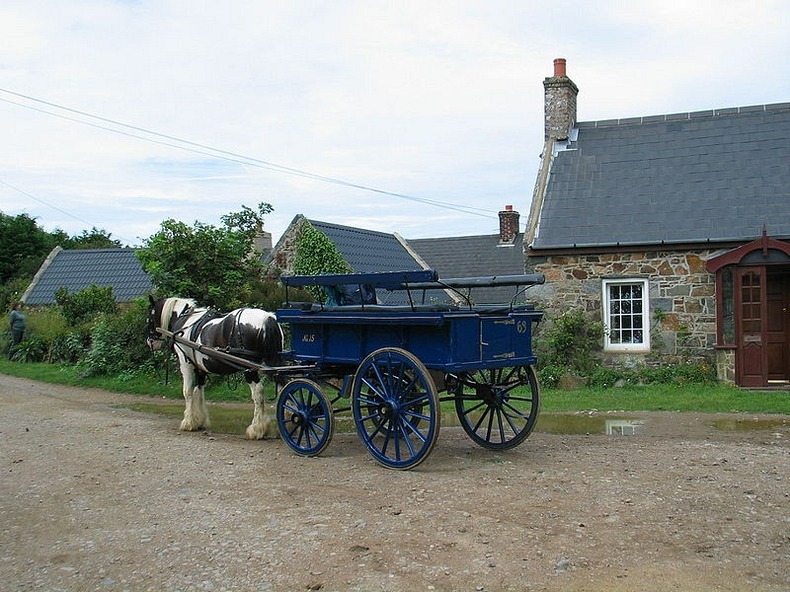
Horse drawn carriages on Sark. Photo credit

The disputed Brecqhou island. Photo credit
Sources: Wikipedia, Daily Mail, The Independent, Telegraph



Is it self-sufficient, or does it bring in outside supplies? Awesome to learn, thanks!
ReplyDeleteI spent my honeymoon on Sark in 2007; I remember it being very relaxed and it really was like stepping back in time. Thanks for using a couple of my photos from then - horse drawn carriages & ambulance.
ReplyDeleteMy mother has lived on Sark since arriving as an anthropologist to study it in the late 1950s and falling in love with a local man. We've just digitalised her photos from then. Much has changed...some good, some not so good.
ReplyDeleteHow lovely, look forward to a visit next time we are in England, Thank You for the information, Enjoyed it very much,
ReplyDeleteI was there this spring, and the island was truly idyllic.
ReplyDelete